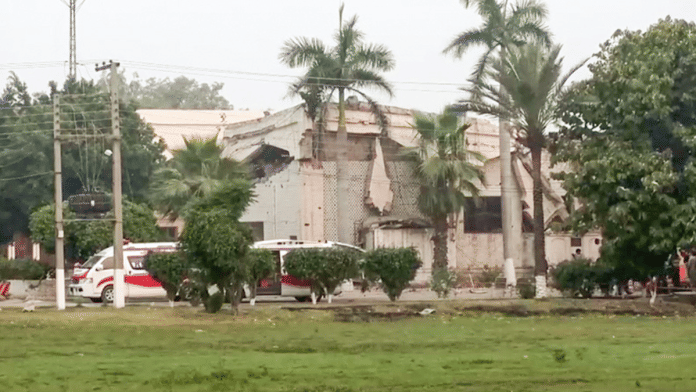An afterburner takeoff with two engines at a little after 0400 hours is a roar unlikely to be forgotten anytime soon. From an advanced air base, the thunder may well have reached Pakistan even before the aircraft appeared on their radar. In the murky world of combat, particularly the kind revolving around the grisly spectre of terror and counter-terror, truth is a certain casualty. But the Pakistani Defence Minister has, for once, been honest. After decades of denial, he is the first senior Pakistani official to admit that the country has been supporting terror groups.
India’s totally expected retaliation for the heinous massacre in a Pahalgam meadow in Kashmir on 22 April crossed a number of lines—not visible on the ground, but etched into diplomatic drawing boards and military operational charts. These lines serve as markers for permissible actions and the subsequent responses that are, from many perspectives, avoidable. Chief among these perspectives is the global space afforded to retaliatory measures between two nuclear-armed neighbours. The ultimate nightmare scenario, of course, is the escalatory ladder where someone pulls the forbidden nuclear trigger, consuming entire communities.
India has been crossing the Line of Control since the Jammu and Kashmir insurgency began in early 1990. What was unacknowledged for years became public with the announced surgical strikes of 2016, though those remained within a zone of acceptable lines. The first time the lines were truly crossed was in 2019, when India launched stand-off missile attacks on terrorist infrastructure in Balakot following the 14 February bombing of a CRPF convoy in Pulwama. The 2025 missile strikes represent a massive instance of lines being crossed, as the targets included four sites in the Pakistani province of Punjab—Pakistan’s centre of gravity.
Pakistani politics and its Army are overtly run from Punjab. From the province’s northern tip to its southern boundary, Indian missile strikes have landed—an unprecedented escalation. All selected targets were as predictable as India’s retaliation. Most notably, Bahawalpur—the headquarters of Jaish-e-Mohammed, whose attacks have ranged from blowing up General Pervez Musharraf’s bullet proof limousine to the Pulwama convoy bombing. India had no need to expose Pakistani denials, with a statement reportedly attributed to JeM chief Masood Azhar confirming the deaths of his family members.
Also read: Operation Sindoor aimed at hands that wield the gun, not brains that control the hand
Onus on Pakistan to stop India from further action
The onus now lies with Pakistan to take stock of how it manages the terror networks operating from its soil. India has crossed certain lines, and the global response has been more than sufficient to give New Delhi both space and options for manoeuvre. This isn’t good for Pakistan, even in the short term, because the possibility of further Indian actions remains, and has been confirmed by the world at large. The trigger that fired this round of retaliation was Pakistan Army Chief General Asim Munir’s sectarian speech delivered to an audience of expatriate Pakistanis.
The Pahalgam terrorist attack mirrored his sectarian rhetoric, and it is now clear that Pakistan must return to the agenda drawn up five decades ago, when it joined hands with Saudi Arabia and the United States to inspire jihad in Afghanistan. This is a fact-check Indian Army officer Colonel Sofiya Qureshi should have done before describing it as a three-decade-old policy. The overt jihadi threat to India only appeared after Pakistan crossed the nuclear threshold. It has since relied on the assumption that India would not cross certain lines.
Those lines—not crossed even during the 1999 Kargil War—have now been crossed. The gloves are clearly off. Alongside the loss of truth, there is now a real risk of casualties, and society must be prepared to take them on the chin. In combat, the punches often come unexpectedly. War is not a clinical video game, and setbacks are inevitable. India must remain alert to all possibilities—whether it’s an increase in terrorist activity in unexpected regions, as seen in previous years, or a raid on LoC posts by Pakistan’s Border Action Teams.
Manvendra Singh is a BJP leader, Editor-in-Chief of Defence & Security Alert and Chairman, Soldier Welfare Advisory Committee, Rajasthan. He tweets @ManvendraJasol. Views are personal.
(Edited by Prashant)






